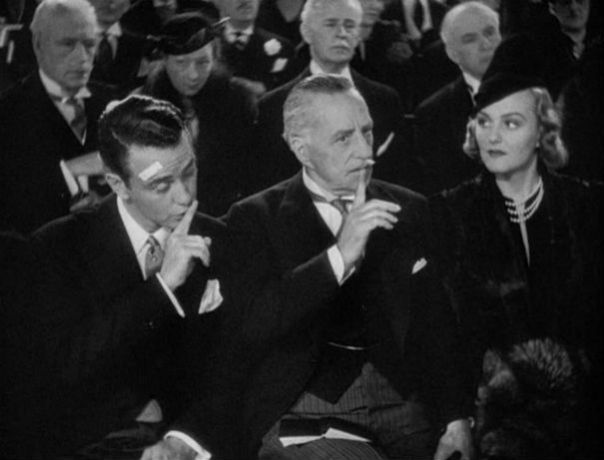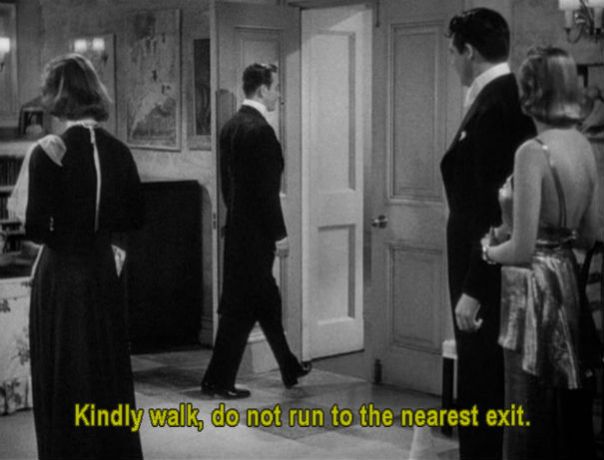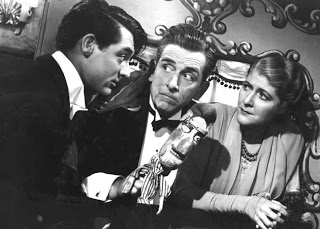 |
| originally published in "Modern Screen," October 1934 |
When Carole Lombard flamed across the screen in "Twentieth Century," a subtle actress who not only held her own with John Barrymore, but almost put that royal acting gentleman away with second honors, Hollywoo lifted a surprised eyebrow. "Well," they said collectively in one way or another, "I didn't know she had it in her!"
Oh, of course, Carole has always been recognized as an outstanding screen beauty, a perfect subject for the favorite press agent adjectives beginning with s, svelte, stunning, sartorial, suave, sophisticated. Amusingly enough, she has rated as a sort of feminine counterpart for all those qualities which have been attributed to their well-known ex-husband, William Powell.
Ever since her Sennett bathing suit days, her extravagant blonde beauty and magazine-cover features have been the cameramen's delight, and she's Travis Banton's private pet as a Paramount fashion plate. For years she has clicked in pictures as a photographic personality.
But until the advent of "Twentieth Century," Carole has never been considered any great shakes as an actress, or even as a bizarre off-screen personality.
Of all the sophisticated ladies of Hollywood, Carole has raised as the most innocuous. She has created no trouser fad, after the manner of Dietrich, not a mystery pose, after the manner of a Garbo. She reads her fan mail, when she reads it, in a comfortable chair in her dressing-room, not in the studio roadway after Hepburn. Unlike Jean Harlow, her name has been on the front pages of the newspapers only during two periods in her life, her marriage and subsequent divorce from William Powell. Never once has she sobbed through the prints of her aching heart, or soul, in the glorified self-dramatization of Joan Crawford. Carole stands apart from the silken sisterhood of Hollwoo for an unique reason -- she can't fool herself!
Self-dramatization is not only important in the creation of glamor in Hollywood, it is the very heart and essence of it. Go down the list of the great glamor ladies of screen history from Theda Bara on through Swanson and down to Garbo, Dietrich, Hepburn, Crawford and Harlow and you will find the greatest off-and-on "acts" of them all. Bara with her incense, Swanson with her gilded luxuries and and many marriages, Dierich, the Trilby, Garbo the mystery, Hepburn the incredible are as well known to the public as their greatest screen roles.
But what about Carole, who looks as glittery as any of them, who has often actedin surroundings more silken. What of Carole?
Every time you read anything about Carole it is to the effect of what a "swell scout" she is. There is never anything temperamental or eccentric to report about the Lombard. No "set" hysterics, no wild extravagances in living beyond her income. Even in her divorce from William Powell was as quietly conducted and obtained as it is ever possible to divorce in Hollywood.
In the past six months I have read three interviews on Carole. One was titled "She Knows What She Wants, for Carole Lombard Has a Great Head for Business." The second was: "The Girl Who Has Worked for Every Break She's Had," and the third, and by far the most sensational was: "What's THis About Carole Lombard and Russ Columbo?" Substitute the name of Dick Powell for Columbo's, and those same stories might have been written about Mary Brian.
For a little while after "Twentieth Century," the rumor hounds tried to pin something sensational on Carole. After all she had flared forth in a tremendous hit and Hollywood, true to form, was trying to remodel her in the usual grooves. One writer, straining at the slim angle of Carole's frank, outspoken manner of speech, attempted a difficult-to-prove story calling her "The Most Shocking Woman in Hollywood."
When the papers announced that her new picture with Gary Cooper was being held up because Carole was suffering from an attack of influenza, the behind-the-hand-whisper brigade was anxious to tell you she had made a perfect invalid of herself through the rigid dieting and that she had to go to the hospital regularly to have her health built up. Another group tried hard to start the rumor that Carole, after years of being plugged by Paramount, was planning to walk out on her contract because of a rush of "Twentieth Century" importance to the head. And, of course, everyone became terribly interested in the "seriousness" of her romance with Russ Columbo. You can't ever say Hollywoo didn't give Carole a chance to be sensational!
But it's no use. I've just come from an hour's talk with her in her dressing room and she isn't now, or ever, going to play ball with the Hollywood "gagsters."
"I've never gone in for fooling myself or the people who like me on the screen," she said definitely, "and I don't intend to start now, "Twentieth Century" or no "Twentieth Century." My fans are going to have to like me without an act, because I haven't any."
Carole, wearing an enormous, floppy blue hat, with blue pajamas and sports sandals in still another shade of blue, had hailed me with a "Hi." She looked like a Vogue version of the Farmer's Daughter, the huge "farmerette" hat only partially concealing a face completely devoid of powder or rouge, a very scarlet mouth, and a brand new finger wave in her blonde hair. Gary's typical western background was definitely out of line for the chic effect she presented as she seated herself on the divan surrounded by Indian arrows, pipes, tins of tobacco and Indian blankets. Settling far down on her spine and crossing a slim ankle over her knee, she delivered herself of the above observation after I had prodded her about Hollwood's new "Lombard rumors."
"I was terribly amused by that attempt to pin an act on me by making me 'The Most Shocking Woman in Hollywood' in print," she laughed. "I was amused to read about this person, who it appears, has a vocabulary like a longshoreman and makes Mae West's screen bon mots sound like nursery fables in comparison. For a minute it burned me up, particularly when I read the part that 'explained' that I said most my hectic remarks for the purpose of shocking people, and that it wasn't natural, but just a misplaced effect.
"Maybe it is true that I have a habit of being abruptly outspoken and not a mincing my words. I've never believed in kidding myself by calling a spade a garden implement. But never in my life have I ever said anything for the purpose of embarrassing anyone, or for any 'effect' of being the most shocking woman in Hollywood. It's only with people whom I know intimately that I'm liable to express myself anyway. I'd like to meet this reporter sometime and ask him what he has actually overheard me say that is so 'unprintable.'
"But I really can't get peeved about Hollywood gossip. I've been treated to so little of it. The press has always been more than square with me. As for the printed hint that I have wrecked my health with diet, what does it really matter? People just have to have something to talk about, and if my diet has become the worst they could think up for me, I'm really grateful.
"I know perfectly well I haven't hurt myself through diet, because my diet is sensible. I don't believe in recommending diets, or trying to get others to follow your particular food routine, because everyone's systems is different and what would be wonderful for me might be harmful for you. The only sensible thing to do is diet under a doctor's supervision, and this I have always done. No, when you read that a picture of mine has been held up because of a cold, it is really a cold and not a polite form of starvation."
The smoke curled idly upward from her cigarette as she calmly dismissed the pose of Hollywood's "most shocking woman" and Hollywood's "most starved woman" from her list of sensation possibilities.
"I have never understood why it is necessary to be the most anything in Hollywood, to catch publicity attention," she went on. "Do you suppose people would have liked any 'mystery star' less if she had given out interviews in place of refusing them, or if a new sensation had read her mail in a chair instead a studio alley? I think 'putting on an off-screen act?' is just a Hollywood superstition and oftentimes I think it acts like a boomerang.
"Why should screen people be made out as eccentrics and near-freaks in order to catch public attention? Why should it be more intriguing to read that So-and-so flies into tantrums on the set in place of reading the truth about almost all of us, that we are a hard-working bunch who go about our business as conscientiously as any stenographer or nurse?
"Personally, I live a very quiet life in Hollywood. Occasionally I entertain, but my parties are no different from any parties where a group of friends get together for an evening of laughs or card games. The problems I face and the life I live is only slightly less different that indulged in by a professional woman in any walk of life. Only in our case, I mean movie actresses, we deal in emotions, not shorthand. Now, what can be so 'mysterious' and 'inside' in the news that Carole Lombard has been seen in public many times with Russ Columbo that is any different from the fact that Mary Jane Jones is going to dances and parties with Harry Whosis? Is Mary Jane necessarily headed for wedding bells with every man over twenty-one with whom she is seen in public? Is Carole Lombard?"
It was a good opening, so I said, "Well, how about answering that?"
Carole laughed, "Well, frankly I haven't anything to say about it, because I won't ever say anything about it. I have repeatedly said in interviews I do not believe marriage can go hand in hand with a movie career for a woman. I still believe that. But, in the future, I absolutely refuse to say I will not do this, or I will do that, in regard to anything in my private life. Don't mistake that remark as a hint that I am backing down on any hint of my anti-marriage arguments. I'm not. But it annoys me to read where certain players heatedly deny they are going to be married, or divorced, as the case may be, and before the story can get out in print they are either married or divorced.
It is amazing how casual and logical our problems are to us in Hollywood, and how exaggerated they are made to seem when we find them rumored about in print. For instance, all this talk that I am planning to walk out on my Paramount contract because i made a hit at another studio in 'Twentieth Century.'
"If people outside the business would only realize how silly these stories are, I'm sure they'd stop. In the first place, practically every star in Hollywood has a business manager who is in complete control of all contracts. Of course, our agents consult us about future pictures and contracts, but usually any deal is settled in a purely business basis between the agent and the heads of the studios.
It happens that just at this moment, as I give you this story, my future contract is in the 'conference stage,' which means that my future plans are now under discussion. If it should turn out that I do not remain at Paramount, 'gratitude' or the lack of it, will have nothing to do with it. Sometimes it can happen that a star and a studio can be together so long they become mutually stale. Look at the new flurry of interest in Claudette Colbert and Clark Gable since. 'It Happened One Night' when they were both borrowed from their home plants by Colombia. Clark as admitted in print that he was beginning to be a little bored with his career before this knock-out picture came along and proved to the public and his producers that he was as good in comedy as he was in the heavy lover roles. Long contracts with one studio, very often, you know, can sometimes turn out like certain marriages. They can reach the point where interest lags and too much is taken for granted, and a change is recommended for both parties. By the time your story gets in print it will probably be known whether or not I will resign wit Paramount, or make it a friendly parting. But whichever way it is decided, it will be a purely business move, and not a sob story on either side." (Incientally Carole did sign a new contract with Paramount.)
She said, in parting, as an assistant director stuck his head in the door and told her she was wanted for a fitting in the wardrobe department, "I'm sorry if I've spoiled the Hollywood attempts to make an eccentric, or a sensationalist out of me by explaining all my problems in such a simple fashion. But fooling myself, or other people, as never been a talent of mine."
How can you help but like her for it?
http://carole-and-co.livejournal.com/733762.html
Again, thank you, Carole & Co., I hope you don't mind that I'm "resharing" the badassery of this amazing woman.



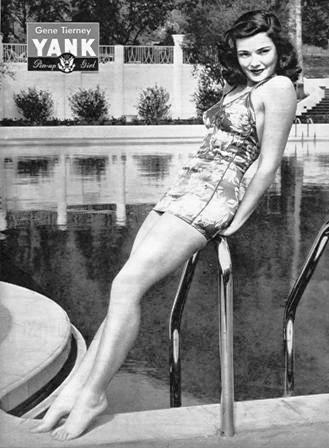

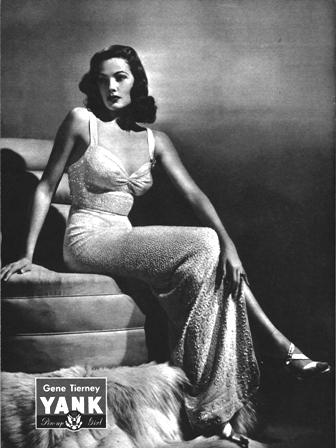

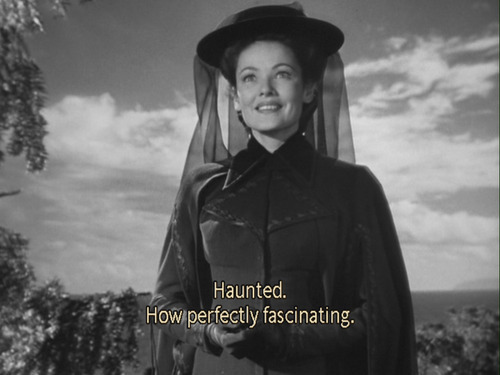
.jpg)
.jpg)
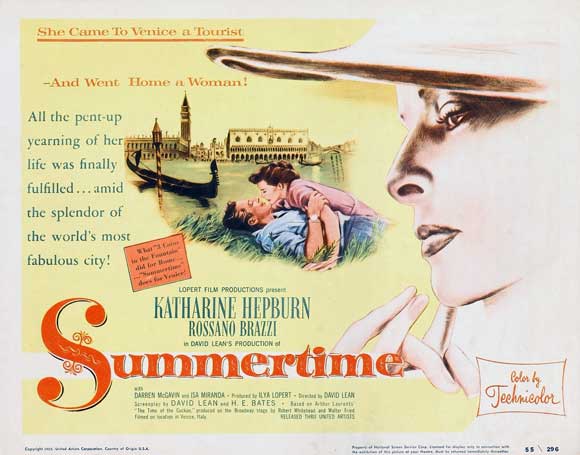



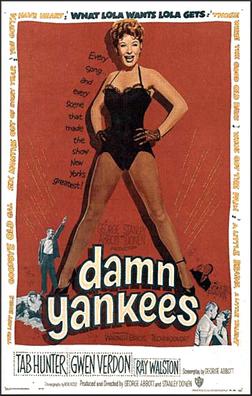
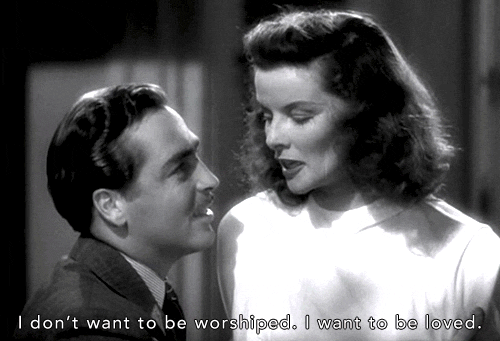
+4.jpg)


